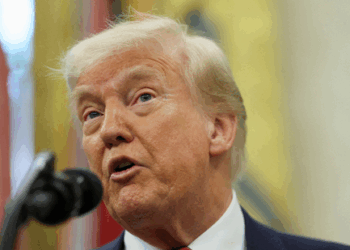The pact under consideration may not take the form of an ironclad, NATO-style defence guarantee, as initially sought by the kingdom. Instead, discussions revolve around a more flexible arrangement, similar to existing treaties between the U.S. and Asian nations. Another option on the table is a model akin to the U.S. agreement with Bahrain, where the U.S. Navy Fifth Fleet is stationed, which would not require congressional approval.
To sweeten the deal, Washington is contemplating designating Saudi Arabia as a Major Non-NATO Ally, a status previously granted to Israel. This status comes with a range of benefits, including training and cooperation in various areas.
Saudi Arabia, however, remains resolute in its demand for binding assurances of U.S. protection in the event of an attack, citing past incidents such as the missile strikes on its oil facilities in 2019, which Riyadh and Washington attributed to Iran. Such an agreement, if realized, would significantly reshape the Middle East by uniting two historical adversaries and strengthening the kingdom’s alliance with the United States.
While the Palestinian issue remains an integral part of regional politics, the potential normalization between Saudi Arabia and Israel would take precedence. Palestinian aspirations for statehood could take a backseat, as with previous Arab-Israeli agreements, causing some tensions within the Palestinian leadership.
Saudi Arabia seeks a comprehensive agreement with Israel, including commitments related to territorial adjustments, restrictions on settlements, and a halt to annexation efforts in the West Bank. Riyadh has also pledged financial support to the Palestinian Authority. Despite these demands, it is unlikely that the deal will address core Palestinian concerns such as borders and East Jerusalem.
Saudi Crown Prince Mohammed bin Salman (MbS) has expressed his country’s evolving relationship with Israel, emphasizing the need for Israel to alleviate the Palestinians’ living conditions. Still, he has refrained from mentioning Palestinian statehood explicitly.
Although progress has been made in negotiations, winning support from the U.S. Congress presents a challenge. Lawmakers from both sides of the aisle have criticized Saudi Arabia for various reasons, including its military involvement in Yemen and its perceived role in the killing of journalist Jamal Khashoggi in 2018.
For President Joe Biden, a potential alliance between the U.S., Israel, and Saudi Arabia could counterbalance China’s diplomatic advances in the region, particularly its role in facilitating a rapprochement between Saudi Arabia and Iran. This, in turn, could lead to renewed U.S. engagement in the Middle East, an outcome desired by Riyadh.
As diplomatic discussions continue, the world watches closely, recognizing the potential for this alliance to reshape regional dynamics, while bearing in mind the complex web of geopolitical and security considerations at play.








 India
India












